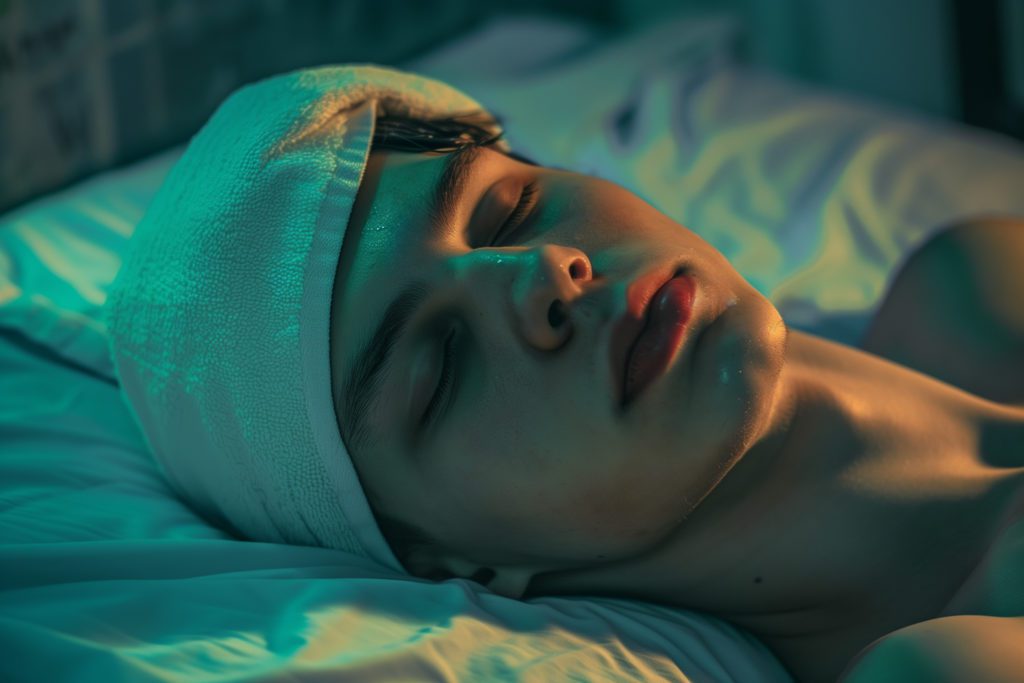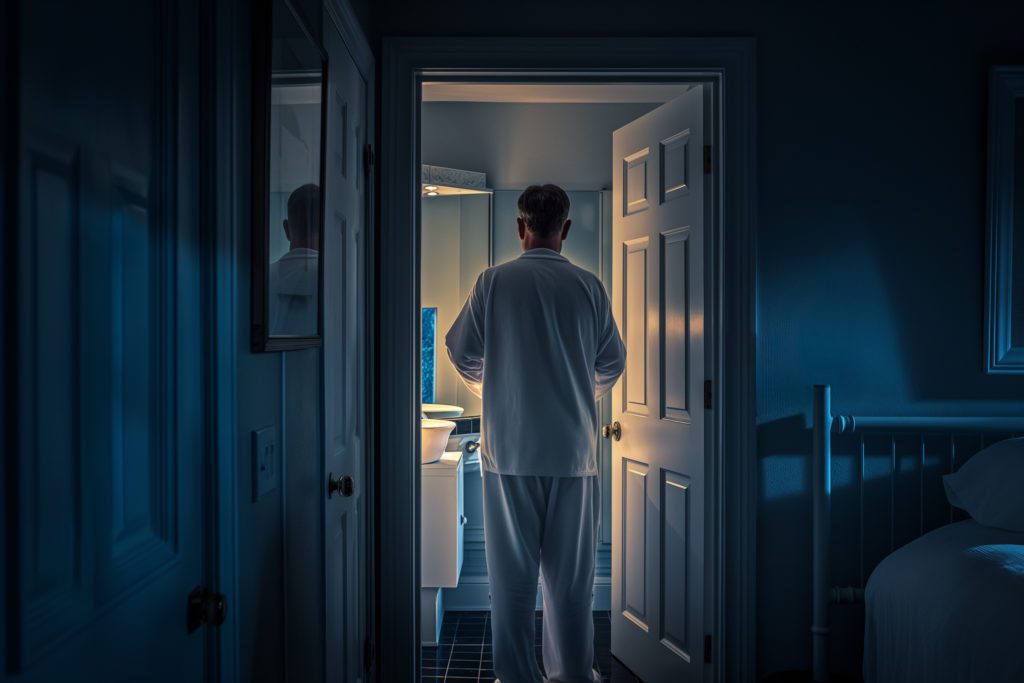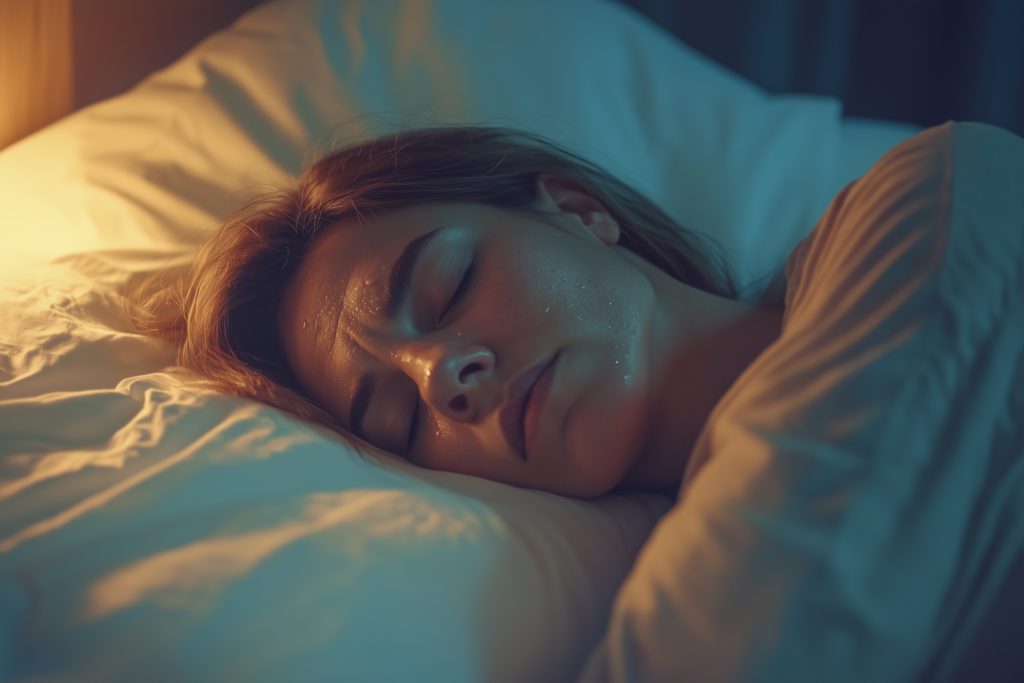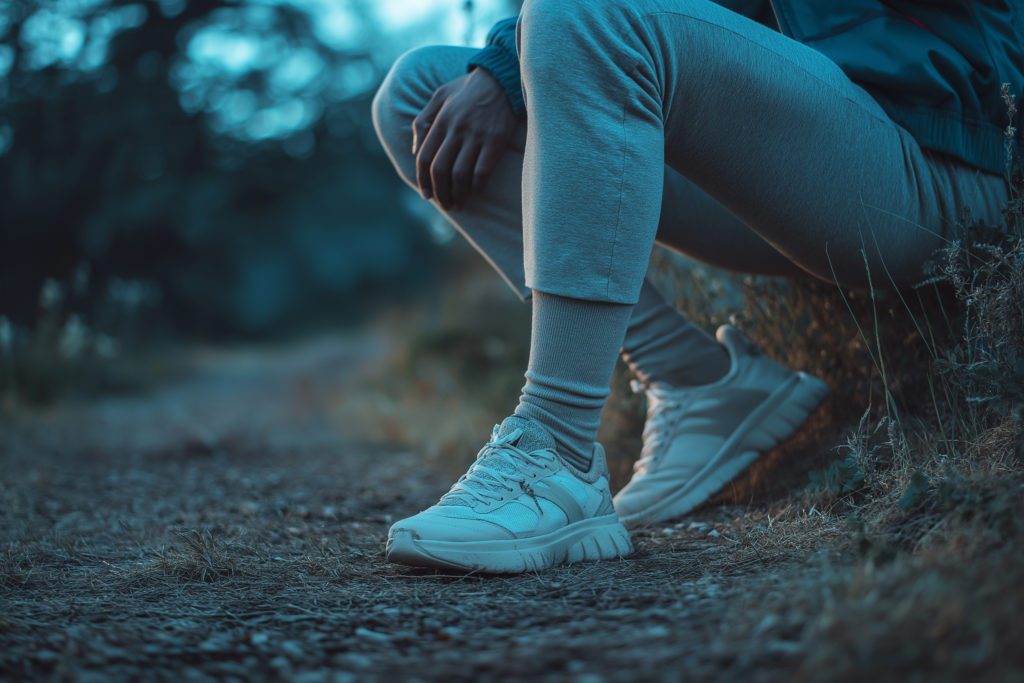
Sleep Deprivation and Aging: How Lack of Sleep Affects Your Skin
Sleep deprivation can affect your skin’s health, potentially leading to wrinkles, dark circles, and acne. Learn how to get more beauty sleep each night.

Have you ever woken up after a poor night of sleep and felt that your skin looked lackluster? Maybe there were dark circles under your eyes, or maybe your wrinkles felt more pronounced, and your skin looked paler and duller than normal. Whatever you perceived, it likely wasn’t in your head—your sleep plays a crucial role in your skin’s appearance, and sleep deprivation can easily show on your face.
What happens if you have inadequate sleep night after night? Over time, the lack of sleep can be taken out on your skin, increasing the signs of aging—there’s a reason why it’s called “beauty sleep.”
What Happens While You’re Sleeping
It’s all too easy to assume that the only thing you do while sleeping is restore your energy levels. The truth, though, is that your body is much busier than it may appear.
While you’re asleep, your body is hard at work maintaining its processes and repairing itself, whether it’s processing memories, boosting immune cells, or regulating metabolism.
Some of the restorative processes that occur while we’re sleeping include:
- Strengthening the immune system
- Increasing the production of growth hormone, which is believed to help with rebuilding cells and growing muscles
- Decreasing stress hormones and regulating other hormones
- Forming and maintaining brain pathways responsible for memory and learning
In addition to being crucial for your daily functioning, some of these processes can also play a role in your physical appearance, showing how sleep and physical appearance co-mingle.
Sleep and Appearance
It’s easy to see how sleep deprivation can cause declining physical and mental health, but it can also affect your physical appearance. One reason for this connection has to do with our circadian rhythm, which is the 24-hour internal clock that is primarily responsible for regulating our sleep-wake cycles. However, disruptions to the circadian rhythm, which can result from sleep deprivation, have been connected with many conditions affecting the skin.
Some of the ways in which sleep deprivation can affect your appearance include:
- Wrinkles and fine lines
- Paler skin than normal
- Red or swollen eyes
- Hanging corners of the mouth
- Dark circles below the eyes
- Drooping or hanging eyelids.
Let’s take a closer look at how this is.
Sleep Deprivation Worsens Your Complexion
If your complexion is not as clear as you’d like, sleep deprivation may be to blame.
Our circadian rhythm is responsible for regulating the behavior of the skin—at night, our skin has a high level of blood flow, which increases your body temperature and helps to repair damaged skin. Furthermore, the peak time for your body to repair skin cells that have been damaged by sunlight is in the early morning.
Our body relies on this rhythm, but if your circadian rhythm is disrupted by something as simple as a single late night, it can throw off all aspects of your circadian rhythm, including when your body would typically take care of the skin.
Sleep deprivation studies have shown that sleep loss can lead to skin dehydration and peeling skin, even after only one night. Additionally, a later bedtime has been associated with an increased production of oily secretions to compensate for this dehydration, which may lead to certain types of acne.
Sleep Deprivation Deepens Wrinkles
Our skin is made up of many proteins, but the two most talked about are collagen and elastin, whose role is to make the skin elastic, flexible, and full.
When you don’t get enough sleep, your immune system can be weakened, which can then affect how much collagen you have and how strong it is. With less and weaker collagen, wrinkles can form.
Not getting enough sleep has been associated with increased wrinkles, frown lines, and crow’s feet, and they can develop faster than you may think. A small study on women in their 40s found that just one night of sleep deprivation could cause these changes.
Sleep Deprivation Can Cause Dark Circles
There are many causes of dark circles, and sleep deprivation is one of them.
When you don’t get enough sleep, your skin can become dull and pale. With the under-eye area already having thin skin, these changes can make the blood vessels and dark tissues underneath all the more noticeable, giving the appearance of dark circles. Some researchers also theorize that a lack of sleep can decrease oxygen around the eye, causing the blood vessels to dilate, further contributing to their increased appearance.
Not getting enough sleep can also cause your eyes to become puffy, which may then cast a shadow on your under-eye, making dark circles appear.
Tips for Prioritizing Beauty Sleep
Seeing how much our sleep factors into our physical appearance, we must prioritize getting enough sleep each night to ensure that our skin continues to look the way we want.
One way that you can get enough beauty sleep each night is by focusing on your sleep hygiene, or the set of habits that improve sleep. These habits include:
- Optimize your sleep environment. Your ideal sleep environment is going to be three things: dark, cool, and quiet. So, turn on a fan, close your curtains, and use the Pillow app to play some white noise as you drift off to sleep.
- Follow a sleep schedule. It’s not just kids who benefit from bedtimes; adults also see benefits with their circadian rhythm from following the same sleep schedule, even on weekends.
- Wind down before bed. Don’t try to go to bed energized and stimulated—sleep will be near-impossible to come by. Instead, incorporate some calming activities such as reading or meditating before bed to help your body calm down. As a bonus, they will help to reduce your stress levels, which can also impact your skin’s appearance.
- Exercise during the day. It’s not just your nighttime habits that improve your beauty sleep; prioritize regular exercise during the day to make falling and staying asleep easier.
Ultimately, the best way to get your beauty sleep is simply by focusing on getting more good, quality sleep—when you get that, your body will take care of the rest.
Getting enough sleep ensures that your brain, immune system, and metabolism work more efficiently while also allowing your skin to fight the typical signs of aging: dark circles, wrinkles, and crow’s feet. To keep your appearance from aging overnight, be sure to focus on getting enough beauty sleep.

Written by
Jessica G
Medical writer freelancer who has written hundreds of articles on varying topics. Masters of Engineering degree in Biomedical Engineering.
Download Pillow
Get help
Press & News
Legal
Connect
X (Twitter)
Company
Copyright © Neybox Digital Ltd.



